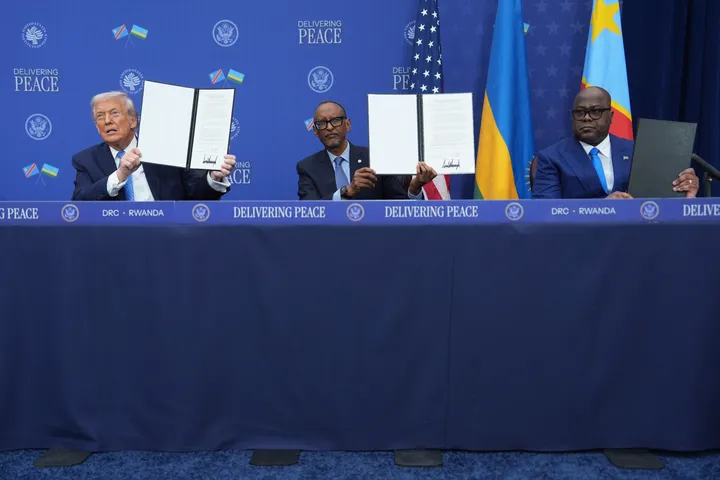Former Mauritanian President Mohamed Ould Abdel Aziz on Monday firmly denied in court all allegations he faces of abusing his power and amassing a huge fortune.
Aziz, who ruled the pivotal country between North Africa and Sub-Saharan Africa between 2008 and 2019, fell into disgrace under successor and current President Mohamed Ould Ghazouani.
With the prosecution having demanded a 20-year sentence, the 66-year-old former leader embarked on an hour's long monologue in court.
"All of these accusations are false, unjust and part of a warped plot against me," he told a packed criminal court in Nouakchott.
'Where is proof?'
"I am accused of corruption, Where is my corrupter? Where is the proof of this corruption?" asked Aziz, defending himself serenely but spiritedly in Arabic.
He was rarely interrupted except when helped to translate an idea expressed in French, each of those occasions drawing protest from the court.
"I am directly targeted," he said, arguing that his predecessors were not held to account. Indeed, his is a rare case of a top leader facing a court charged with self-enrichment in office.
Aziz has been responding in the case since January 25 along with ten other figures, including two former prime ministers, former ministers and businessmen, variously accused of "illicit enrichment", "abuse of functions", "influence peddling " or money "laundering".
'67 million-euro' assets
He has been in detention since January 24, after spending several months in custody during 2021.
Son of a tradesman, Aziz, is understood to have amassed assets valued at around 67 million euros by the time of his March 2021 arrest.
As well as a long jail term, the prosecution has demanded he forfeits his assets.
The accused are all called upon to address the court in their defence before sentencing. The court is set to retire for deliberation ahead of sentencing set for the coming days.
➤Click here to follow our WhatsApp channel for more stories
























